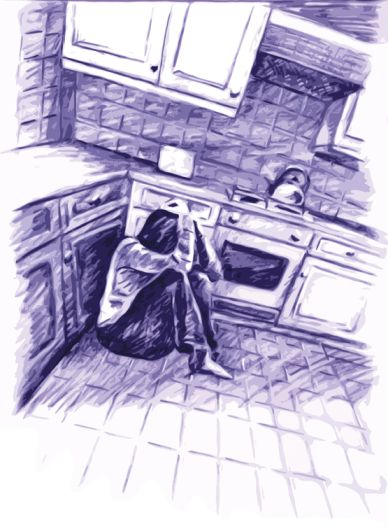According to the Domestic Violence Resource Center, one in four women have experienced domestic violence in their lifetime. There are nine women editors on the Loquitur staff. According to this statistic, at least two of us will experience a form of domestic abuse at some point. Something needs to be done about this pandemic.
The Domestic Violence Resource Center defines domestic violence as, “a pattern of coercive behavior aimed at gaining and then maintaining power and control over the behavior of an intimate partner.” Domestic violence is never an isolated incident; it is a pattern with distinct cycles.
Cabrini College has brought truth to the motto of “Do Something Extraordinary,” by having an entire day dedicated to domestic violence awareness and education through the Domestic and Dating Violence Symposium.
By inviting Lynn Rosenthal, White House special adviser to President Obama on Violence Against Women, to keynote the day, as well as having various special guests and open panel discussions, Cabrini is striving to articulate the right information about this issue.
The events on campus on Oct. 4, are working in accordance with the domestic violence Engagements in the Common Good classes. The Loquitur Editorial staff is grateful that the Cabrini community is committed to this important issue because as young adults, this is an issue that can affect many of us.
As college students, we are in the most vulnerable age group for domestic violence. The Bureau of Justice Statistics states that women between the ages of 20-24 are at the greatest risk of nonfatal intimate partner violence. Colleges and universities across the country should be committed to education about domestic violence because most traditional students actually fall in the age group most at risk.
The U.S. Department of Justice states that 3 million women per year are physically abused by their husband or boyfriend. It is important to note that domestic violence does not only affect those in married relationships.
Another common misconception of domestic violence is that the victims are always women. While it is more common for women to be affected, men are not immune to this injustice. In fact, while 85 percent of victims are women, 15 percent are men. Because of this, it is important to educate men and women alike.
Unfortunately, one of the most affected groups of domestic violence is children. Studies suggest that 3.3-10 million children witness some sort of abuse annually. Not only is this incredibly sad for a child to have to witness this, it will also stay with them for the rest of their lives. It can affect their development and growth as well as performance in school and extra-curricular activities.
Perhaps the worst part of children being affected is that the cycle is very likely to continue. Children who witness abuse are more likely to be abused or commit an act of abuse at some point.
In a national survey of American families, 50 percent of men who frequently assaulted their wives also frequently abused their children. One of the scariest aspects of domestic violence is that it can affect any average person. Victims are not strangers in foreign lands but they are friends, family members, neighbors, classmates and colleagues.
One in four Americans, 74 percent of people in this country, know a victim of domestic violence. Whether currently in a relationship or not, everyone needs to get the information about what constitutes domestic violence. If we empower ourselves and our loved ones with information and resources, hopefully the problem will never come to head.
By having a zero-tolerance policy for violence, we can promote healthy, positive and safe relationships. Everyone deserves peace of mind as well as a safe environment for their relationships and families.
If you have been a victim of domestic violence, you can call the National Domestic Violence Hotline at 1−800−799−SAFE (7233) or visit www.thehotline.org.



